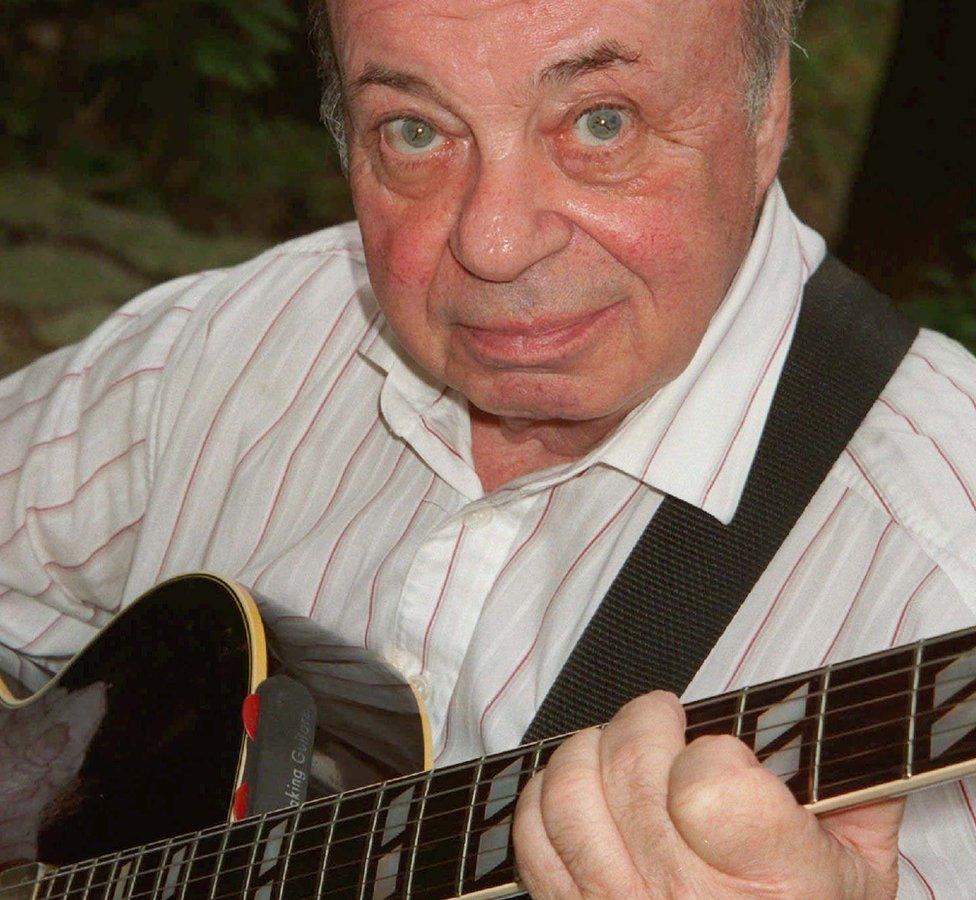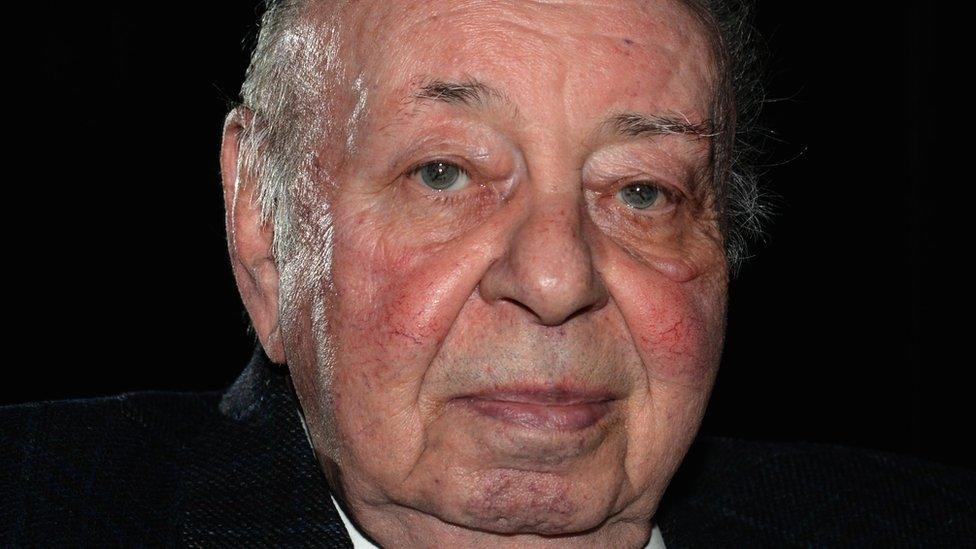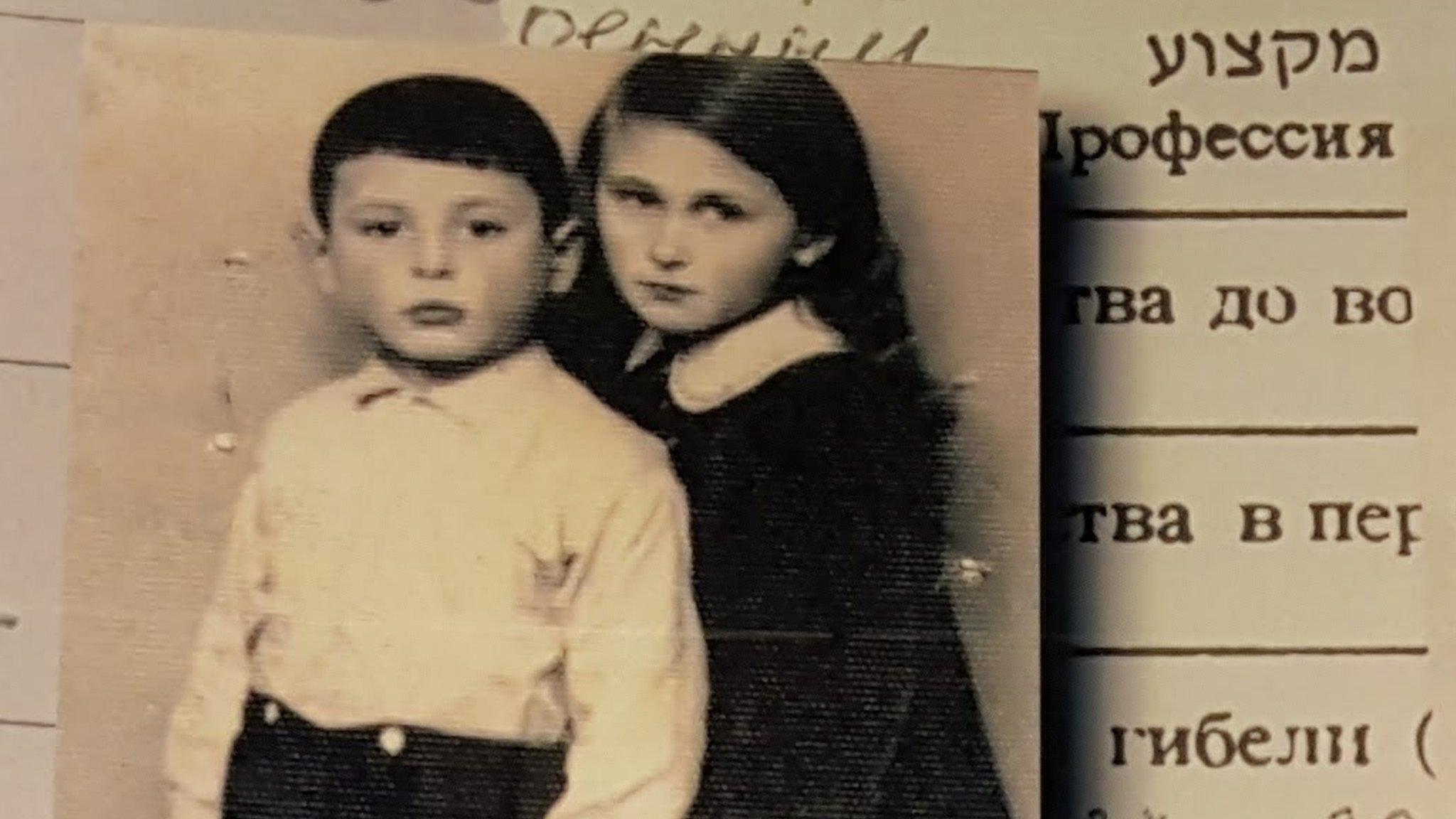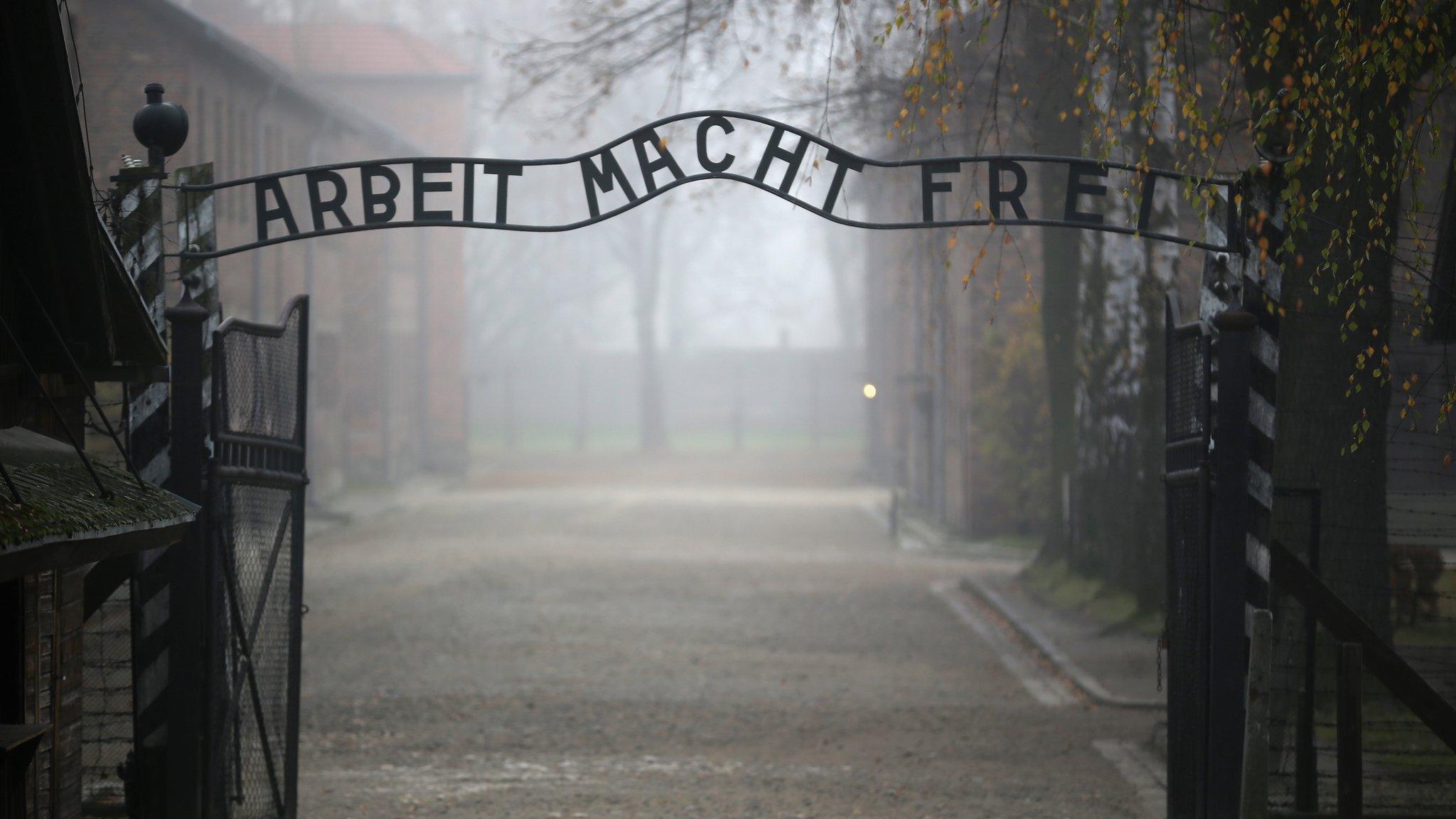Heinz Jakob 'Coco' Schumann, German jazz musician, dies aged 93
- Published

German Jewish jazz and swing musician Heinz Jakob "Coco" Schumann has died aged 93, his record company says.
Schumann, a Holocaust survivor, "delighted his audience" not only with music but with "humour and warmth", the company, Trikont, said.
The musician was said to have become fond of swing music after hearing it at the Berlin Olympics in 1936.
He was later forced to entertain Nazi guards at a number of concentration camps after he was detained in 1943.
Trikont, the Munich-based record company that represented Schumann, said the musician died in Berlin on Sunday. The cause of his death has not been announced.
Schumann, who was born in Berlin in 1924 to a Jewish mother and a father who converted to Judaism, made a name for himself in the city's underground music scene in the 1930s.
He trained himself to play the drums and the guitar and joined his first band as a teenager.
It was his French girlfriend who gave him his "Coco" nickname after she reportedly struggled with the pronunciation of "Jakob".

Schumann said performing for Nazi guards was playing "music in hell"
In 1943, after the Nazis' rise to power, Schumann was arrested and deported to Theresienstadt, a concentration camp in what is now the Czech Republic.
While at Theresienstadt, Schumann became a member of a band known as the Ghetto Swingers. He was forced to perform for Nazi SS officers running the camp and later described the experience as "unbearable".
"We played music in hell," Schumann later said of his time at Theresienstadt, external, the Huffington Post reports.
The following year, along with the other members of the Ghetto Swingers, he was sent to the Auschwitz death camp in Nazi-occupied Poland, where he was made to play for prisoners and those subjected to forced labour.
Schumann, who later survived a prisoners' "death march" as the Nazi guards fled advancing Allied troops, said that music had "saved my life".
He returned to Germany at the end of World War Two and continued playing music, making several records.
In 1950, he left Germany for Australia but returned four years later to relaunch his music career before touring with his Coco Schumann Quartet.
He also became one of the country's first prominent electric guitar players.
"I am a musician who was imprisoned in concentration camps," Schumann said in later years, adding: "Not a concentration camp prisoner who plays music."
His autobiography, The Ghetto Swinger: A Berlin Jazz-Legend Remembers, was first published in 1997 and became a bestseller. In 2012 it was staged as a musical in the German city of Hamburg.
- Published24 April 2017

- Published28 January 2017
